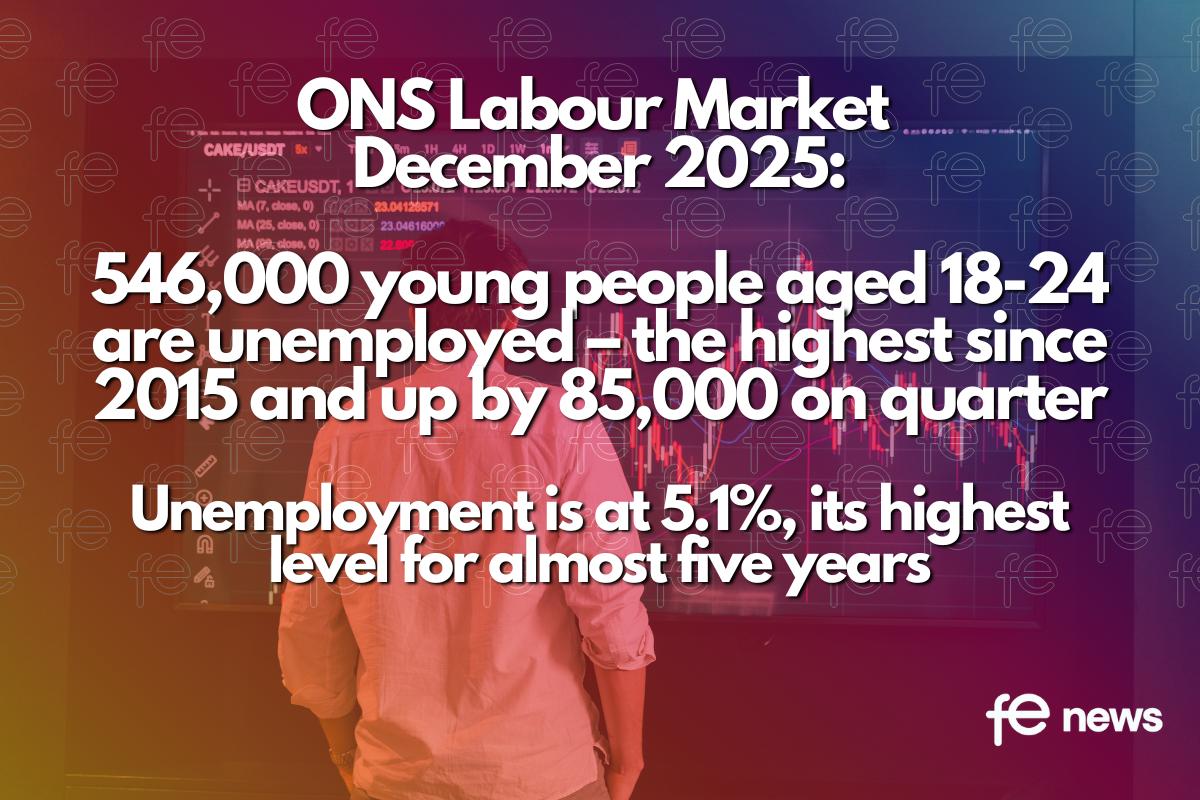What does ‘Revolutionary’ Really Look Like?

#Post16RevolutionaryReforms – After a summer where FE has again been more of an afterthought than a priority, the autumn policymaking agenda promises to change this with a ‘revolutionary’ white paper.
In many ways setting out radical reforms are rather easier than dealing with the day to day problems of running schools, colleges and exams.
It is easier to stylise a future without outlining details of delivery, resources or the capacity to deliver real change – or in other words how we get from where we are to where we want to be.
Successive education ministers have, for example, aspired to create a ‘German-style’ technical education system many times in the past. But no government has delivered one.
Many governments have also reformed vocational qualifications and set up new, specialist institutions too.
Few of either have remained intact for very long. The most radical thing on offer this time might just be seeing reforms through and retaining ministerial and wider government interest while this happens.
Even so, the key question is what ‘revolutionary’ really means and which specific agendas might demand such change:
1. Employment
The first of these three agendas is employment (and for the foreseeable future, unemployment).
As we know, Covid-19 is creating a growing unemployment problem, especially for young people. According to the Resolution Foundation, the current economic crisis risks pushing an additional 600,000 18-24-year olds into unemployment in the coming year – and causing long-term damage to their pay and job prospects. Another 800,000 18-24-year olds are expected to leave education this year, and according to the Office for Budget Responsibility – unemployment is forecast to rise by 6 percentage points. This is twice as large as the increase following the financial crisis in 2008.
But FE’s focus on employment is not just about the immediate impact on the young. We were already facing major changes to the labour market and to the way we work. From technological change and Covid-19, to ageing populations and climate change, people of all ages will need new skills and retraining. This demands a real focus on adults in and outside of the workplace.
However, trends in adult learning are running in the wrong direction. Between 2010 and 2018/19, the number of adults in part time higher education fell by 53%. In the same period government spending on adult learning in England (excluding apprenticeships) fell by 47%. In 2019, the Learning and Work Institute recorded the lowest participation rate over two decades – the third year in a row in which the participation rate has fallen to a record low.
And so, from Kickstart to apprenticeships and the retraining of adults, the Further Education sector must play its part. In turn, this requires much better joining-up of employment and benefit policies of DWP and skills and student support policies at DfE.
2. Growth and Productivity
The second important agenda is growth and productivity.
The UK has a pressing and urgent productivity problem. This is magnified by the pandemic. The Augar Review rightly described a ‘missing middle’ at Level 4 and Level 5 pointing to much higher participation (and prestige) in countries such as Germany, France, the US and South Korea.
Connected to this is a missing layer of applied research too. The Government intends to remedy this by doubling spending on R&D, meeting a target of 2.4% of GDP (the OECD average) in the middle of the decade. At both the 2017 and 2019 General Elections, all political parties committed to going further and hitting 3%.
DfE ministers have already promised to improve and expand higher technical education. Most recently this has been focused on new higher-level qualifications and building more Institutes of Technology. Funding for both must have parity with university or degree routes for either to have a chance of success (or longevity). But to maximise productivity, DfE funding and policies for Level 4+ apprenticeships, full- time and part-time higher technical education, full-time and part-time first degrees and postgraduate degrees must be better joined-up with BEIS policies to increase R&D spending especially on applied research.
3. Regional Inequality
The third agenda is addressing regional inequality and helping to deliver the Government’s promise of ‘levelling up’.
According to Phil McCann at the University of Sheffield, the UK has described a ‘geography of discontent’ pointing out that ‘the UK is one of the most inter-regionally unequal countries in the industrialised world’. Increasing funding and expanding provision begins to counteract declining local economies, rebuilding skills and tackling perceptions – real or otherwise – of being ‘left behind’. It requires a reconfirmation of colleges’ civic role and an active role in economic and social recovery.
In turn this requires better joining up with the Ministry for Housing and Local Government. A white paper on devolution in England is expected shortly. It is unthinkable that the employment and productivity agendas are not integrated when the devolution white paper and the post-16 white paper are published.
4. Devolution and FE Autonomy
This leads to the fourth agenda of devolution and FE autonomy.
Regional inequality shows that one size does not and cannot fit all. It is vital that FE colleges have the flexibility and incentives to build partnerships and programmes at a local level – whether with other institutions – such as universities and training providers – LEPs, local councils, combined authorities and elected mayors, employers and national government.
In turn, this leads to a very different conversation about devolution and not one based on control, power or planning a system. This sounds much more revolutionary than it is. Most other countries have much more institutional autonomy and in England this has been an explicit element in both schools (especially academies and free schools) and in universities.
There does need to be a bigger shift towards local priorities especially, but not exclusively, in city regions. This must include setting priorities for 16-19 as well as for adult skills. Full devolution and creating similar command and control local bureaucracies may be a step to far with the danger that local systems may be just as burdensome and sclerotic as nationally. A better first step may be to form local boards similar to those overseeing the NHS and social care in GM. National NHS representatives still sit on it and national targets, funding mechanisms still apply but strategic priorities and local commissioning is managed locally and in universities.
Repositioning FE
Each of these agendas can demonstrate that ministers are serious about FE and that Government sees it as an essential part of its broader objectives. FE will only really show its importance (and a white paper be really ambitious and radical) if it can demonstrate what FE is for.
By effectively joining it up with the labour market, local and regional economic development and helping to improve productivity – especially as we recover and rebuild after Covid-19 – FE can demonstrate real worth to individuals, to organisations and to places. And to Government too.
Three Reforms for the White Paper
- First, the post-16 white paper should introduce clear links and referral mechanisms between unemployment programmes and benefits (as well as for those on low-pay and for firms accessing benefits during Covid-19) to training and retraining programmes and to broader full-time and part-time FE and HE provision.
- Second, the white paper should commit the Department for Education and the Department for Business, Energy and Industrial Strategy to link Institutes of Technology to Catapult Centres and to other applied research institutions and activity.
- And third, the white paper should establish local Skills and Employment Boards with powers for setting priorities and managing funding for 16-19 as well as adult skills. This should follow the model of health and social care devolution in areas like Greater Manchester with local oversight, relevant national standards and targets and based on a principle that more day to day and strategic autonomy for colleges must be a clear condition.
Andy Westwood, University of Manchester
‘Revolutionary Forces’In the immediate aftermath of the Covid-19 pandemic, it is easy to forget that there were wider revolutionary forces at work on the UK’s economy before the virus outbreak. Issues such as Brexit, the rise of automation in the workplace, longer working lives, and poor UK productivity have brought into even sharper focus, education and skills. NCFE and Campaign for Learning (CfL), published the first in the series of ‘Revolutionary Forces’ discussion papers on 6 July 2020. In this Revolutionary Forces series different perspectives and proposed reforms for the post-16 education and training system have been brought together in one pamphlet, from expert stakeholders, think-tanks and educational professionals. Building on the recommendations outlined in the first paper for flexible reforms that support economic and social renewal, this new paper, “Reforms for a Revolutionary Post-16 White Paper“, takes a deeper look at which areas need to be addressed. The authors are:
|











Responses